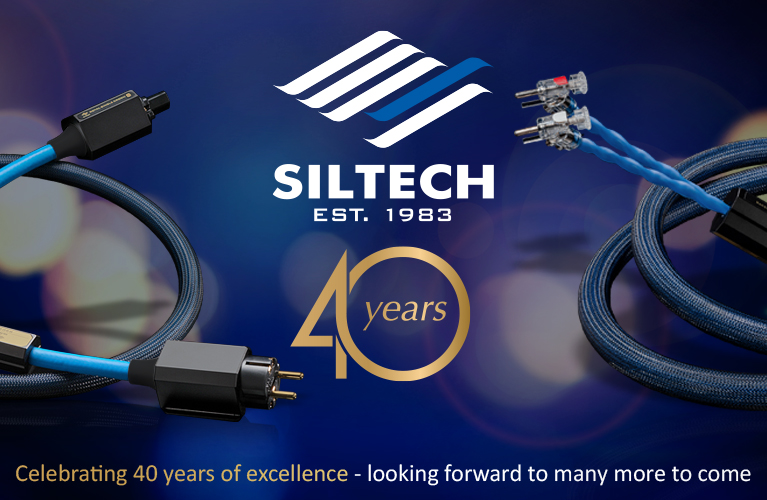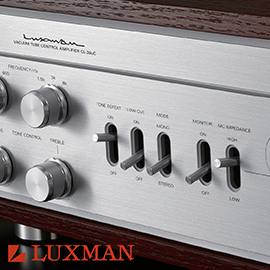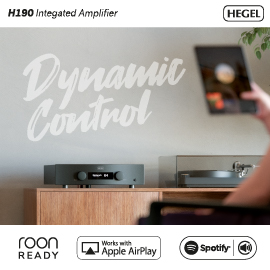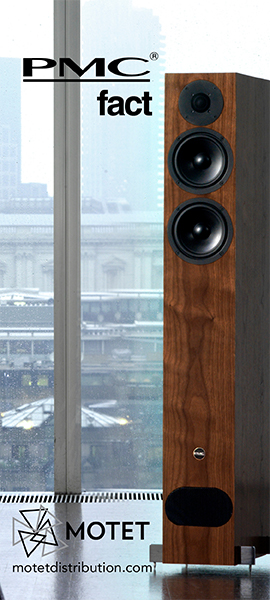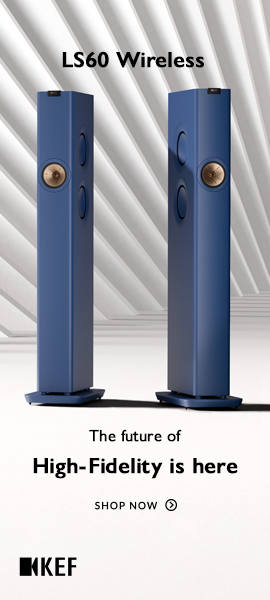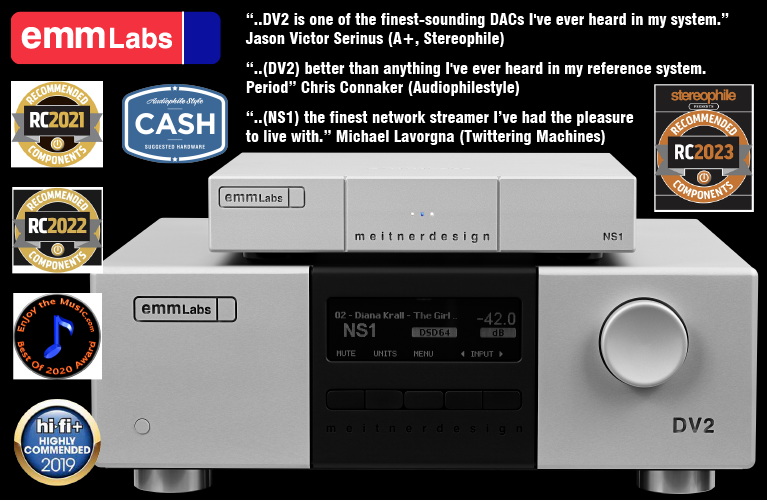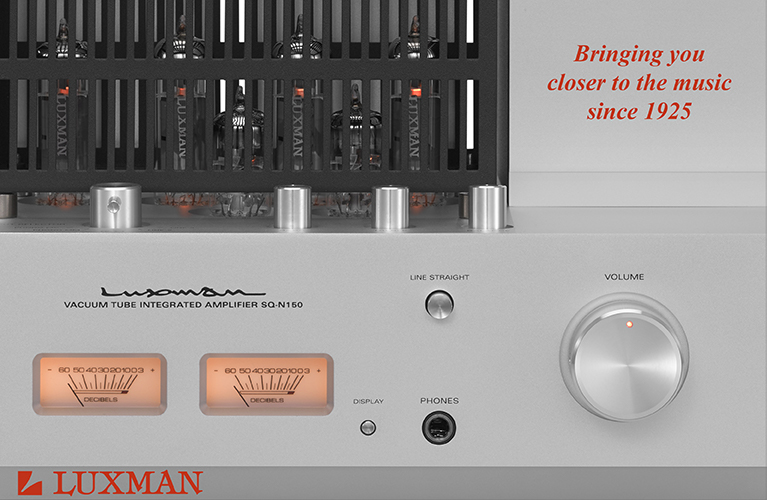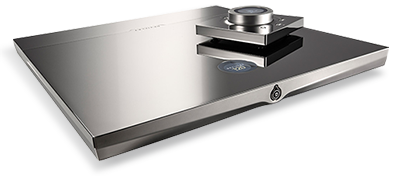
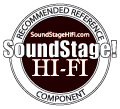 “The Devialet 120 is a state-of-the-art piece of hardware, an inspired design marked by deep originality and a thorough understanding of how humans actually interact with modern technology.”
“The Devialet 120 is a state-of-the-art piece of hardware, an inspired design marked by deep originality and a thorough understanding of how humans actually interact with modern technology.”
Those are some of the strongest words Hans Wetzel has ever used in a product review, and for good reason -- in his July 1 SoundStage! Access assessment of the Devialet 120 integrated amplifier-DAC, he also called it the “single most impressive product” of his reviewing experience. That’s high praise for what is currently Devialet’s lowest-priced product, which retails in the US for $6495. Above the 120 in Devialet’s line are the 200 ($9495) and 250 ($17,495). (Each model number reflects its product’s power output into 6 ohms.) Like the 120, the 200 and 250 are stereo designs, but the latter two can be configured as mono amplifiers of even greater power and lower distortion.
Hans’s praise for the 120 was partly for how it functions and looks -- it combines a digital preamplifier section that converts all incoming analog signals to digital, a digital-to-analog converter at the other end of the signal chain, as well as DSP options, wireless streaming, and the company’s patented Analogy Digital Hybrid (ADH) amplifier technology -- all in a low-profile, lightweight, energy-efficient case that resembles a chromed bathroom scale. But mostly, Hans enthused about the 120’s sound:
“The Devialet 120 sounded effing majestic. For those who skip a product’s specifications when reading reviews, the Devialet is the flag bearer for why specs matter. The claimed THD and IMD ratings . . . are nearly benchmarks, as is the signal/noise ratio. Such a lack of distortion is easily audible. Every other amp I’ve reviewed has produced an audible hiss when I put one of my 29-year-old ears within about 6” of a tweeter. With the Devialet, I had to place an ear literally on the Tangerine waveguide of the recessed tweeter of one of my KEF R900s, and even then I could hear only the faintest white noise. Back in 2011, when the practically ancient (he’s a quinquagenarian!) Doug Schneider reviewed the [Devialet] D-Premier for our sister site SoundStage! Hi-Fi, he said he couldn’t hear any noise from his Revel Salon2s’ tweeters, period.
“Once the music began to play, this quality continued to manifest. It’s hard to comprehend just how low a noise floor can go, especially compared to a top-flight integrated like my Hegel H300, which also measures exceedingly well. Backgrounds were absolutely pitch black, with zero noise, zero hash, nothing at all to detract from the music. And the music itself was so unsullied by grain -- by that ever-so-subtle smearing that I can hear even with the H300 -- that it popped from my KEFs with the utmost ease. Voices and instruments sounded smoother and cleaner than through anything else I’ve heard, and yet, contradictorily, were pregnant with detail. I’d thought it would be impossible for any amp to express every last detail of a recording without sounding analytical in some way, but the Devialet 120 has proven me wrong.”

The only faults Hans could find -- and which he called shortcomings -- had to do with the 120’s power output, its AIR wireless option, and its remote control:
“The Devialet 120’s power output imposed no limitations on my listening, but I know that 90Wpc will not be enough for some listeners. . . . The AIR functionality, which I used for about half of my listening, sometimes dropped out, and sometimes disconnected completely -- to take advantage of truly wireless operation, I had to manually reconnect. But the Devialet was sharing my network with my work and personal computers and several iDevices. A dedicated network, which I don’t have the luxury of, is a must. Finally, there was occasionally a slight lag between my turning of the remote’s volume dial and a response from the 120. But that was it.”
Of those concerns, the 120’s power output is probably the most serious -- if 120Wpc into 6 ohms (or about 90Wpc into 8 ohms) aren’t enough, then the only choice is to move on to a more powerful amp, from Devialet or another brand. However, the 120’s output was sufficient for Hans -- he used the 120 primarily with KEF R900 and Vivid Audio Giya G4 speakers -- and, surprisingly, for Jeff Fritz, who borrowed Hans’s review sample. Jeff wanted to test Devialet’s built-in Speaker Active Matching (SAM) feature with his Magico S1s, and to see if the 120 could drive his enormous Magico Q7s, something not every amp he’s tried has been able to do. SAM improved the sound of Jeff’s S1s and, more surprisingly, the diminutive 120 worked exceedingly well with the Q7s, producing the best bass he’s heard yet from those speakers, and driving them to output levels that fully satisfied him. (Jeff writes about his experiences with the 120 on SoundStage! Ultra this month.) Depending on your requirements, the 120 might be enough for you as well, and thus -- given its high performance, plentiful features, and reasonable price -- a tremendous bargain.
Almost four years ago, when Devialet debuted the groundbreaking D-Premier, it cost $15,995 and received worldwide critical acclaim, including from us. Based on Doug’s review of it for SoundStage! Hi-Fi, the D-Premier won Reviewers’ Choice, Recommended Reference Component, and Product of the Year awards. The 120 is winning similar praise, and this month has been added to our list of Recommended Reference Components. It seems just as impressive as the D-Premier -- especially as it costs considerably less than half the price.
Devialet’s done it again!
Manufacturer contact information:
Devialet
SAS 10, Place Vendôme
Paris 1ER
France
Phone: (33) 502-155-682
Website: www.devialet.com
North American distributors:
Audio Plus Services (US)
156 Lawrence Paquette Industrial Drive
Champlain, NY 12919
Phone: (800) 663-9352
Website: www.audioplusservices.com
Plurison (Canada)
313 Marion Street
Le Gardeur, Quebec J5Z 4W8
Phone: (866) 271-5689
Website: www.plurison.com


